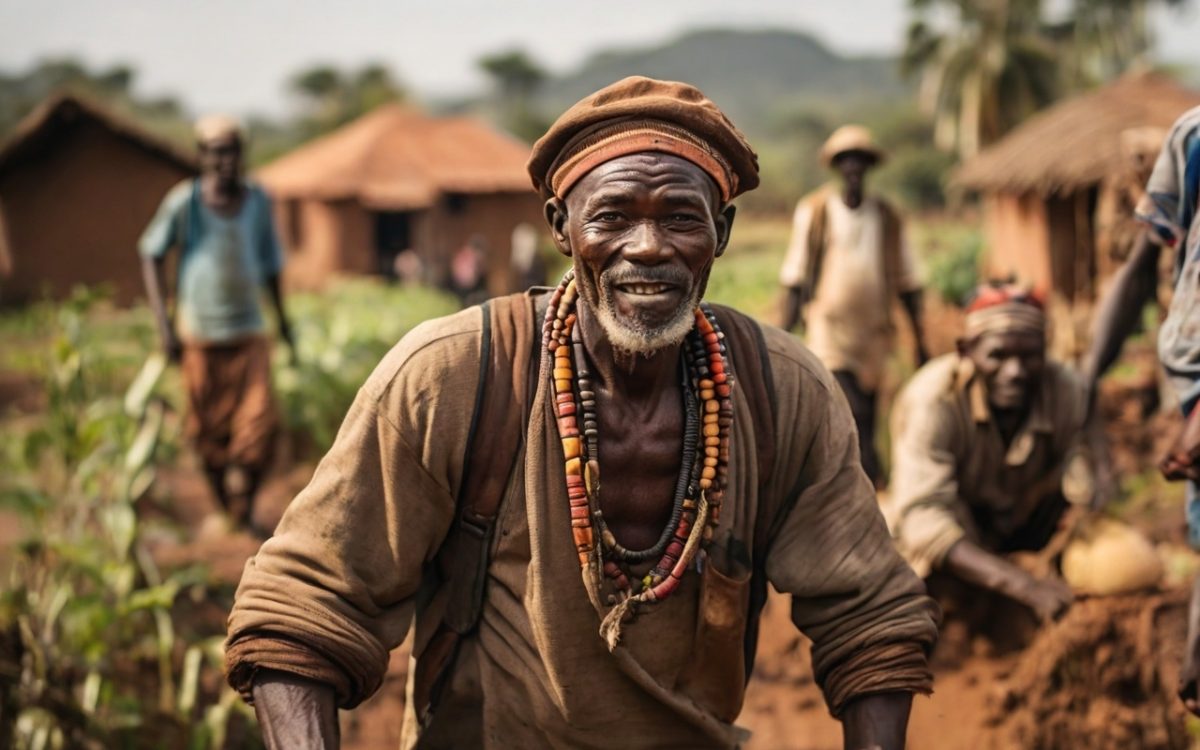(Ngwụzo ọrụ so n’ọrụ”)
Kwanzaa’s fourth principle is Ujamaa, which emphasizes the importance of cooperative economics. It encourages us to work together to establish and sustain our own businesses, stores, and shops and to share the profits equitably. This principle is a cornerstone of our community’s efforts to promote economic empowerment and self-sufficiency. On this fourth day, I want to reflect on one of my childhood memories that express the adage of my people: “ngwụzo ọrụ so n’ọrụ..” those accompanying the labourers are part of the labourers.
Reflecting on my childhood memories, especially around Christmas celebrations, one of the things that comes freely to my mind is our community’s public works. Anyone who grew up in the village will have a lot of stories to tell about such unforgettable moments. In our context, it is a time when different families unite after being separated for some years in some instances. Children run about greeting families, and younger generations listen to the elderly members tell ancient stories. Late December and early January are relatively cold in many parts of Nigeria. Anyway, it is very cold by the region’s standards for those who know more about Nigerian weather. In such moments, we engage in different public works like harvesting farm products and « ikpo eja ogene ».
My village is in a sandy region with no natural water sources, streams, rivers, lakes, and nothing of the kind. Also, our aquifers are too deep to reach, so our ancestors improvised to preserve rainwater. They had no cement either, so they had to improvise other ways of preserving rainwater. This is how Ogene, a rainwater reservoir that served our people for ages, came to be.
These water reservoirs were manually dug and oiled in an open hole to keep water intact for the entire dry season. Ogene is not a regular reservoir for my people, for it is a sacred water reservoir where all community members understand no one should defy either by desacralizing it or fetching more than their families require.
As Ogene collects the flowing rain waters, it gathers sand and dirt and names them each year. The implication is that every year, during the dry season, especially after Christmas celebrations, we clear all our Ogene in preparation for a new rainy season. To do so, the entire community is to be involved. Women bring oil to plaster the reservoir; young guys come to help the strong men do the digging. The elderly come there to encourage the young guys as they battle the dirt that threatens the survival of Ogene and, consequently, our people.
As a young person, this was the highest form of community collaboration and a way of collectively creating a future for both our generation and that of the future. It is how we learn to build and maintain our water reservoirs, distribute resources and other community amenities, and profit from them together. As you can imagine, everyone is to participate in the community work, including those whose strength fails them for among our people, “ngwụzo ọrụ so n’ọrụ.”






